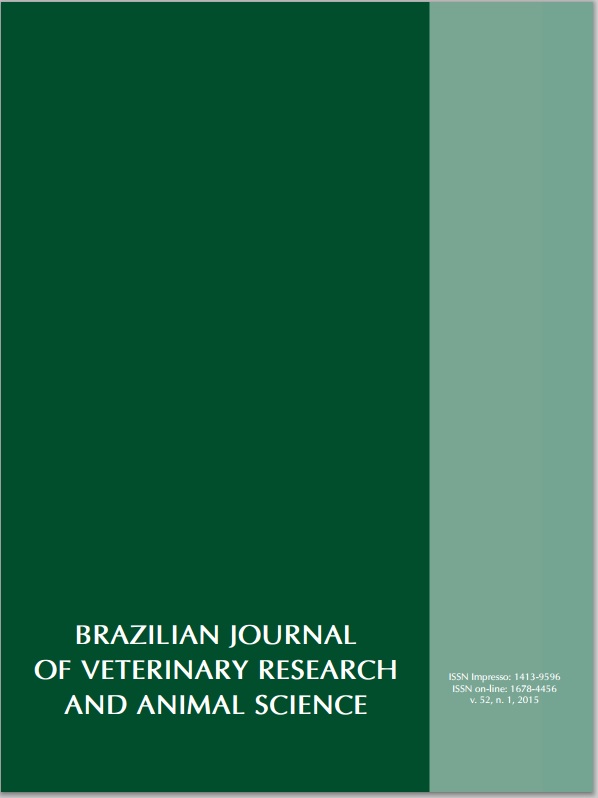Surgical evaluation and laboratory use of homologous pericardium in serous injury by abrasion of large colon (pelvic flexure) of horses
DOI:
https://doi.org/10.11606/issn.1678-4456.v52i1p24-33Keywords:
Equine, Homologous pericardium, Large colon, AdhesionsAbstract
Intra-abdominal adhesions are equine surgery complications, which can result in obstructive processes and jeopardize the survival of these animals. The present study used 10 healthy, male mongrel horses (SRD), with four and 15 years of age and weighing between 300 and 400 kilograms (kg), who underwent laparotomy left station with the aim of inducing adhesions, test intestinal membrane using pericardium as prevention and evaluating the different systemic changes and the abdominal fluid. After sedation and local anesthesia, the surgical approach was used in grade; pelvic flexure was created in an area of abrasion that in Group 1 was covered by homologous pericardium and in Group 2, washed with saline. After repositioning muscle, the skin and subcutaneous tissue were sutured. Postoperative care consisted of clinical evaluation, abdominal fluid cytology, hematology and serum biochemistry in moments M0- preoperative, and M7, M14, M21 and M28 days postoperatively. New laparotomy was performed at 30 days from the surgery to verify adhesion, appearance and intestinal biopsy. The surgical technique allowed less trauma and restricted operative field. The clinical course was satisfactory, and fibrous scar was identified between the muscle planes. Adhesions were not observed. Laboratory evaluations showed increased bilirubin, hematocrit, monocyte, blood urea and protein density and segmented leukocyte peritoneal fluid. The present study concluded that the abrasion was insufficient to promote fibrous adhesions. The implant without proven efficacy is feasible and possible, and does not result in significant differences laboratory or deleterious changes.
Downloads
Downloads
Published
Issue
Section
License
The journal content is authorized under the Creative Commons BY-NC-SA license (summary of the license: https://





